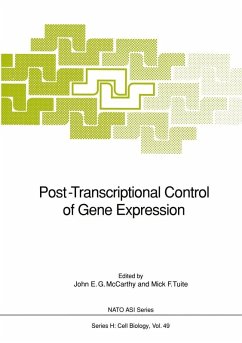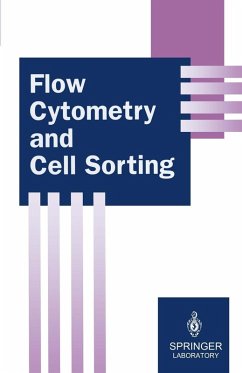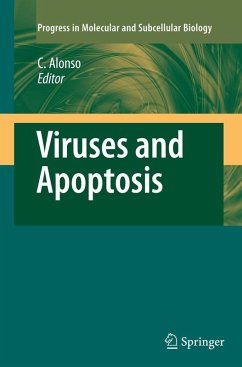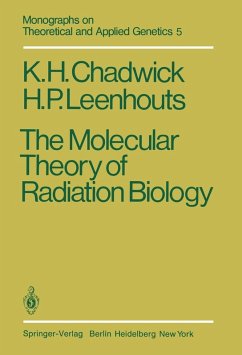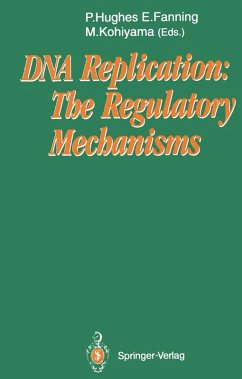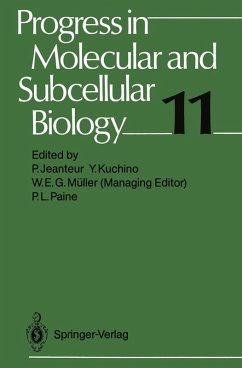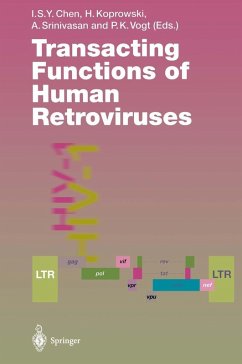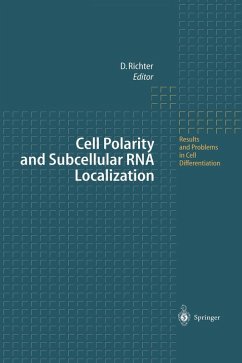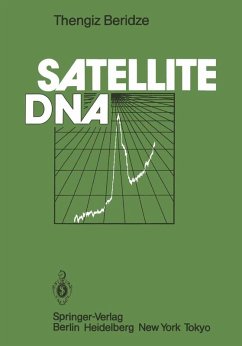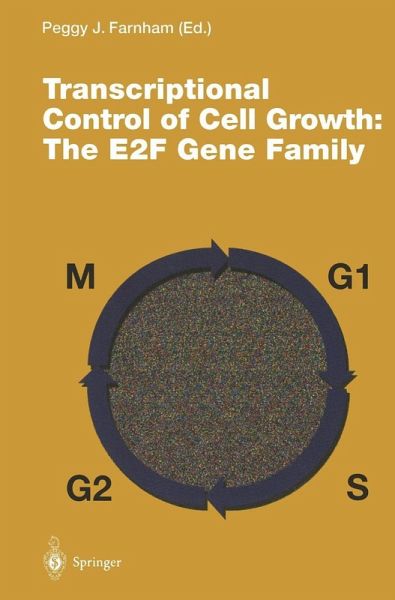
Transcriptional Control of Cell Growth (eBook, PDF)
The E2F Gene Family
Redaktion: Farnham, Peggy J.

PAYBACK Punkte
36 °P sammeln!
It is of critical importance to maintain an appropriate balance between proliferation and quiescence or differentiation through out the lifespan of all animals. An important control point in this balance occurs in the G, phase of the cell cycle. On the basis of environmental cues a cell in G, must decide whether to continue through the proliferative cycle and enter S phase (where DNA replication occurs) or to exit from the proliferative cycle into a nonreplicating state. Alterations in the mechanisms that nor mally control this decision can lead to cancer, cell death, or loss of differentiated...
It is of critical importance to maintain an appropriate balance between proliferation and quiescence or differentiation through out the lifespan of all animals. An important control point in this balance occurs in the G, phase of the cell cycle. On the basis of environmental cues a cell in G, must decide whether to continue through the proliferative cycle and enter S phase (where DNA replication occurs) or to exit from the proliferative cycle into a nonreplicating state. Alterations in the mechanisms that nor mally control this decision can lead to cancer, cell death, or loss of differentiated cellular phenotypes. The identification of the E2F gene family of transcription factors has allowed a more complete understanding of how the cell maintains an appropri ate proliferative state. This volume provides an up-to-date ac count of present reports concerning E2F as well as a framework for future investigations. E2F activity requires heterodimerization of two partners. Either partner can be one of several different transcription factors; E2Fl, E2F2, E2F3, E2F4, or E2F5 can heterodimerize with either DPl or DP2. Cellular promoters whose E2F sites mediate a link between transcription and proliferation drive genes whose products are required for DNA synthesis and genes that encode regulators of cell growth. A detailed analY$is of the role that E2F family members play in transcription from these promoters is presented in the chapter by J. E. SLANSKY and P. J. FARNHAM.
Dieser Download kann aus rechtlichen Gründen nur mit Rechnungsadresse in A, B, BG, CY, CZ, D, DK, EW, E, FIN, F, GR, HR, H, IRL, I, LT, L, LR, M, NL, PL, P, R, S, SLO, SK ausgeliefert werden.



